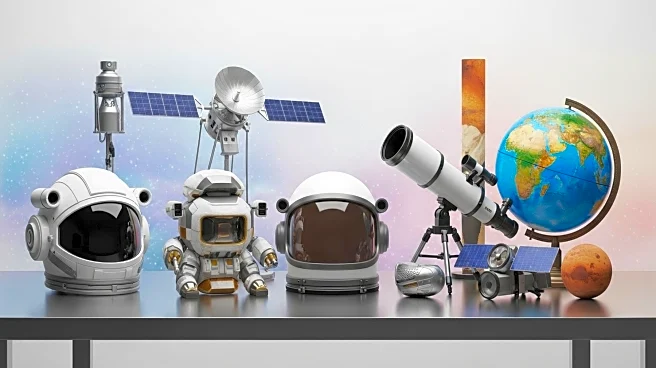What's Happening?
A study conducted by researchers at the Stevens Institute of Technology in New Jersey has explored the impact of diverse personality types on the performance of astronaut crews during long-term space missions, such as those to Mars. Using advanced computer simulations, the study found that crews with a mix of personality traits, including openness, conscientiousness, neuroticism, extraversion, and agreeableness, perform better under pressure. The research suggests that psychological diversity should be considered as important as life-support hardware reliability in mission planning. The study, published in the journal PLOS One, highlights the potential benefits of team diversity in enhancing resilience under extended isolation and operational load.
Why It's Important?
The findings of this study are significant for future Mars missions, which are expected to last at least three years. The psychological challenges faced by astronauts in confined spaces with limited privacy and strenuous workloads could be mitigated by a diverse mix of personality types. This approach could improve teamwork, reduce stress, and enhance overall mission success. NASA and other space organizations may use these insights to refine their selection and training processes for astronauts, potentially leading to more effective and harmonious crew dynamics during long-duration space missions.
What's Next?
The study provides a new tool for NASA and other space agencies to assess and optimize team composition for Mars missions. Future research may focus on refining the model to account for how individual traits evolve over time due to stress and other factors. This could lead to improved methods for predicting crew compatibility and resilience, ultimately enhancing mission planning and execution.
Beyond the Headlines
The study's emphasis on psychological diversity highlights broader implications for team dynamics in various fields beyond space exploration. It suggests that diverse personality traits can enhance performance and resilience in any high-pressure environment, potentially influencing team-building strategies in industries such as healthcare, military, and corporate settings.









